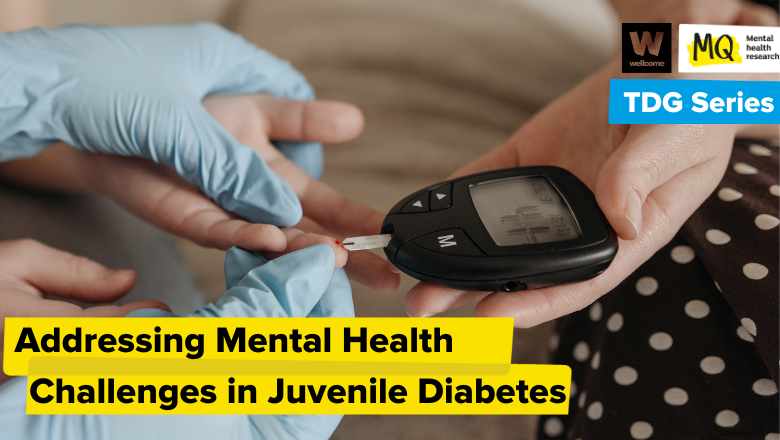In 2024, MQ Mental Health Research created an opportunity, developed and funded by Wellcome, to support researchers outside psychiatry, psychology, and neuroscience to apply bold and novel ideas and methods from their discipline to mental health science. In this Transdisciplinary Research Grant series, we will go through each study, and explain why the results are vital to the future of mental health interventions.
Type 1 diabetes, also called juvenile diabetes, is increasing around the world. A study in The Journal of Pediatrics found that cases in kids under 14 went up by 1.8% every year from 2002 to 2012. Managing this lifelong condition requires a lot of effort from a physical perspective, but the impact on mental health is just as significant. Research shows that children with diabetes are three times more likely to experience depression than those without it. One study found that up to 30% of kids with diabetes struggle with depression, highlighting the critical need for mental health support.
What Did the Research Aim to Do?
Dr Archana Nepal and their team looked at the concept of “pre-depression” in young people with diabetes. This is an early stage of emotional distress that could eventually lead to depression. Through workshops led by mental health professionals, the team aimed to find out if recognizing pre-depression could reduce stigma, encourage early help, and improve mental health outcomes. They looked at over 80 studies to find out how often kids with diabetes experience depression, how well early support works, and if these methods help kids ask for help or feel less ashamed about needing it.
What Have They Found So Far?
Early results suggest that the idea of pre-depression might not be as helpful as expected. In workshops with patients, parents, and doctors, many people saw pre-depression as the same thing as depression. Because of this, it didn’t help reduce stigma or encourage people to seek help earlier. The workshops showed that children with diabetes need better mental health support early on. The participants indicated that it’s important to have services that are easy to get in places like hospitals and schools. They also pointed out that caregivers need more support too.
Patients and their families shared powerful insights during their second round of public involvement. In a day-long workshop, they prioritized symptoms and early markers of depression they felt required urgent attention. Clinicians shared their opinions in a separate workshop and agreed that the idea of “pre-depression” wasn’t beneficial for treating patients. This matched what other research has found, like a study in the Journal of Pediatric Psychology, which showed that it’s hard to use early mental health screening tools effectively in busy healthcare settings.
Where To Go From Here?
Archana’s team’s new focus has shifted from the concept of “pre-depression” to identifying practical methods for enhancing early mental health support for children with diabetes. The team is now considering publishing a viewpoint paper, which would allow them to highlight the gaps in existing research findings and the actual needs of individuals with real-life experiences.
Their current goal is to use these findings in future research and care plans to create better, more supportive systems for young people dealing with both diabetes and mental health issues. This effort aims to improve their lives and bring together physical and mental health care more helpfully.







